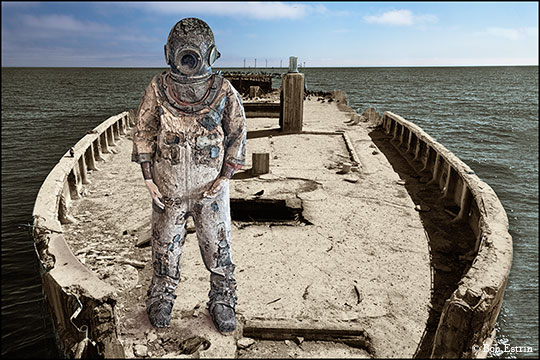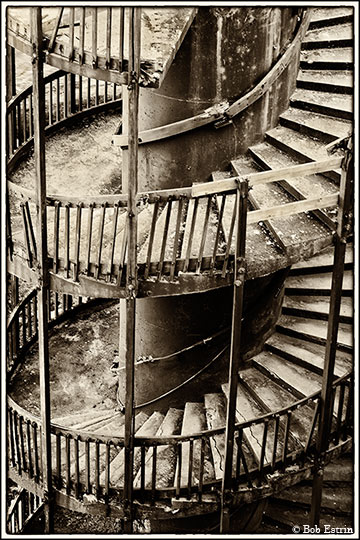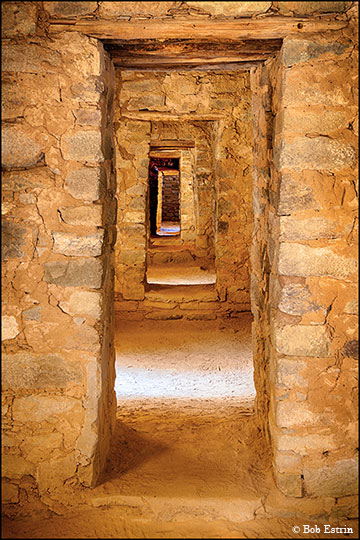Article by Bob Estrin
Photography Degree Career Path
I agreed to answer some questions, submitted to me for a class assignment, from Christine who is a photography student from Arizona State University concerning photography careers. My answers here are from a fine art photographer’s perspective. Christine also responded to the article which is displayed at the end.
I consider what I do in the art fields as a part-time business. It is part of my lifestyle of living versus a source of any steady income that I could reliably live on. While one could make a living full time in other specialty areas of photography such as portraits, photographing children, wedding photography, and commercial photography as a few samples, it is difficult to make money selling the art of any medium.
The questions asked relate mostly to business and do not always relate directly to how I have done things due to the fact that I mostly earned my living by my second degree which was in the computer field. Despite this, I will answer as best I can. My exhibiting and then selling photographer did not start until my late 30’s which is different from starting a photography career right out of college.
1. What different things have you learned that you wish you had known before beginning your business as an artist?
While your question is more about after college, I feel it is more important to determine if this is the right field for you while in college. This directly relates to what you know before you start your business.
If I was coming out of college with a photography degree, which was my first degree, I would want to be aware of the business opportunities that were available to me from working as a paid intern, paid photographers assistant, taking a job as a photographer or working for myself. I would research the number of job opportunities available and how much they pay.
When I went to college, tuition was relatively inexpensive to today’s costs, and now financial issues are more important with many students going into great debt.
I probably would have asked the art department heads, how many people in the photography program are working full time in the photography field that graduated from the program over the last five years. They may not know this, but I feel this is important information you should research. The average college graduate working in a field related to their degree is less than 1/3. I would suspect that most art graduates have even a lower percentage of working full time in their fields.
Most artists do not make a living as full-time artists with most working in a related field such as an art teacher or with art administration. I do not want to sound so down on the art industry, but with college being so expensive now I wonder if an art degree major of any kind is worth it in a practical sense.
I remember while going to college I decided to take a variety of general courses giving me a well-rounded education that would assist me for future personal or business needs outside the art field. I would think if a student was to choose a degree in a non-art field, they would still be satisfied with their choice. A non-art degree could bring in more money that would give one the freedom to pursue your artwork though out your entire life as a hobby or as a money-making side business. There is nothing wrong with following your art or photography pursuits in this manner. Have you considered selecting another major program and pursuing a minor in photography instead.
2. How did you establish your financial points for services and sales?
I am not sure what you are asking here, if you mean how much to charge for services and products
you offer I can give you my opinion on the matter.
You need to find out what your customers want in your particular photography field and offer what they are looking for and at a price point that they are willing to pay that will support your business. Many people starting out do not take into consideration all the costs involved with running a small business and make decisions on how much it may cost them to do a specific job.
In the long term, you need to charge more than you may think starting out to cover other costs such as your time and cost in marketing to find clients, employees, your business rent, equipment costs, insurance, working with others such as accountants or even someone to help you write your business contracts to name a few.
You could see what other photographers in your area are charging or experiment with different price points to see what customers are willing to pay. I do not recommend trying to compete with other photographers that work from the home part-time that charge very inexpensive fees since that would not be profitable in the long run.
If I was a professional full-time working photographer, I would join and attend the meetings of a local professional photography organization such as the PPA (Professional Photographer of America). I actually see the benefit of joining before I worked in the field as a Junior or Senior in college to learn the business end and perhaps get a job or intern with one of the photographers you meet there. I believe that they have a special student rate to join.
As far as sales go, it is a skill that needs to be learned and practiced to get good at it. I am not sure what business subject matters your school is covering but sales skills and marketing skills in finding clients to hire you are just as important as learning to be a good photographer. You could be the greatest photographer but without clients or being able to sell your product, your business would not be as successful.
The following quote is from an interesting article called "Sorry, Photography Students, But its time to find something else to do" (Article here).
"If you are trying to make photography a career, then it is an absolute necessity that you study business and marketing. Most successful photographers spend 80 percent of their time in marketing, business development, and operating their business. They are lucky if they spend more than 20 percent of their time behind the camera."I feel that 80% is a little high, but I would think that 50% of your time might be involved in non-photography aspects and that needs to be taken into consideration on how much you charge for your services. I also recommend taking marketing and business classes in college that would teach you how to find clients and run a small business.
3. What three top ways have you found to be best for networking with potential buyers as well as other artists?
For meeting other artists, local art leagues are a good way to meet other artists. Many of these artists are retired and do art part-time and participate in art league shows. Some of the artists try to sell their art and have a full or part-time home business doing so. Most of these art organizations are geared mostly to the amateur artist but some such as the Sonoran Arts League in Cave Creek have many professional artists and have meetings relating to the art business more than most leagues.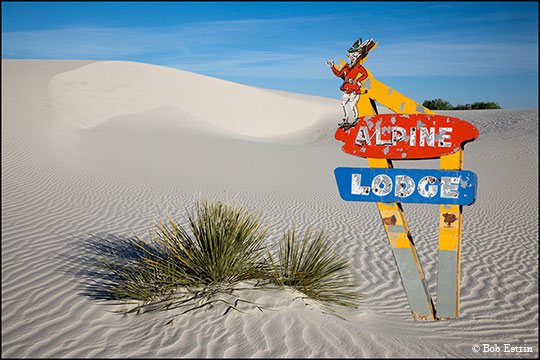
You can also meet other artists by getting your art into juried group shows that you submit to and going to the artist receptions. You can also meet other artists by going to other art events as a visitor and you will generally find more artists at the artist receptions than during regular gallery hours.In more populated areas, you can probably find a club or group of people that is more geared to professional creative's. This would be a good place to network. Check out Meetup groups or call related professional organizations if they know of any clubs or organizations that you could join.
For networking with potential buyers, I have found that my art sells when I am there at events that display my art so I would show up at gallery receptions. I also meet new buyers doing outdoor art shows. It is best to collect email addresses of interesting buyers and of buyers that purchase your work if you can. You can follow up with occasional emails that let potential buyers know what you are up to and show them new work and where it can be seen.
Also on networking with potential buyers really depends on your photography specialty. If I was a wedding photographer, I would do some of the wedding conventions that they have in the Phoenix area or make arrangements with businesses that deal with weddings such as cake makers, wedding dressmakers or wedding event places that offer referrals to wedding photographers.
Many people use social media such as Facebook, Twitter, LinkedIn or gallery sites such as Fine Art America and participate in the discussions that make your art stick out from the many other artists. Most people say to select just one social media site to start and concentrate your efforts on that social media site. It may be difficult to tell if your efforts from social media relate directly to sales but if I get a call, I ask them how they heard about me.I am not sure if having your own custom website would be directly related to networking, but I can say that having a website can bring you orders as if it was an online portfolio and sales tool that can lead a client to contact you and not necessarily from direct online orders.
4. What outside resources did you find most useful to consult when beginning your business? For instance, any organizations, consultants, etc.
In my case, I did not contact outside consultants or organizations when starting out. I find that most advice I was given was not relevant to what I was doing. I can see the value in seeking a consultant short term for a specific function you are working on such as creating contracts; starting an email marketing program or learning specialized skills could be beneficial. The truth is that going to a consultant could cost $80 - $200 an hour and most small businesses just cannot afford them for long. You can seek out advice from more experienced friends that have a similar business and that business does not have to be photography-related.Much of the specialty business information you will need is now available in books or on the internet. Getting valuable information this way is inexpensive or free. One part that may be difficult when you are first starting out and inexperienced is recognizing what information is valuable and directly relates to what information you need now and how to implement that information to an action that serves a purpose to make your business go forward. The two-part article listed below is an example of information that is quite valuable.
One person you may find beneficial to contact on a new business is an accountant or CPA that specializes in working with small businesses. Finding out in advance what you can deduct and how to keep records to take advantage of those deductions will increase your profits and reduce your taxes. You can also determine how to set up your business such as a sole proprietor.
Another person to talk to would be an insurance broker. It is important to have a separate business insurance policy for liability and for photography equipment. This can not only protect your business but yourself and your personal assets from a client. In higher-risk specialties such as wedding photography, working on higher-end commercial photography, or working with children this is even more important.
I do think you can learn a lot by working for a more experienced photographer and learn what works and how you can apply it to your own business when you go out on your own. As I stated above, working with a professional photography organization such as PPA or a related organization would be one option that I would recommend. Joining a photography club or local art league which has members mostly in art mediums other than photography could be fun but not as valuable on the business side of things.
Here are two very practical articles full of good advice from someone who has been through the experience of starting a photography business called "26 Things I Wish I’d Known Before Starting My Photography Business" (Article part 1 here) (Article part 2 here). Having this type of knowledge and experience in advance can save you time, money and reduce the number of similar mistakes that you may make.
5. When beginning your business did you keep a side job to support it? If not, did you look other places for funding or simply take the risk?
When I started to exhibit and showing my art for sale, I had a full-time job outside the art field. I could support my art business with my job and profits from my investments. I am retired now and support my part-time art business with my own money and from the money from art sales. While I put a lot of effort into my artwork in both time and money, I have never made enough money to live off of. This is very common for most artists and fine art photographers.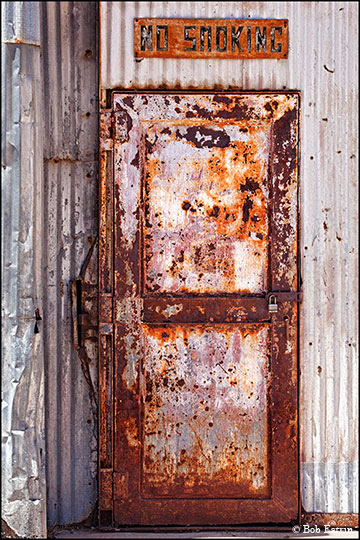
Doing photography in a more lucrative specialty or multiple specialties such as portrait, children photography, sports, wedding, or commercial photography as examples, you can make a living as a full-time photographer.
I did not look for other places for funding since I could fund myself. The traditional method is to try to get a loan from a bank with a good business plan and some collateral but I believe that is hard to do in today’s market. I recommend you consider saving your money in a special bucket for starting your photography business perhaps from making money working with a more established photographer or from doing photography jobs part-time.
I think that building a photography business as a side job is one of many good methods. When you feel that you can switch out to full-time as a photographer and if that is what you want, then go for it. I would know what your initial one-time costs are to starting up full time in advance and also your larger monthly costs such a retail store location including utilities as well as your regular other monthly costs. You may also need to purchase additional specialty photography equipment you will need.
I would recommend that you have these costs saved up as well as living funds for at least 6-8 months since it will take time to build a client base to support your new expenses. If you are still living with your parents, this could help out here. Many new businesses fail in the first year due to not having enough finances to get them through the initial business build-up period to be self-supportive.You mentioned risk in your question and I think that is a good way of stating things. Despite my opinion that it is difficult in making a living in the art field or as a photographer nowadays, that does not mean that one should not try to make a living on what they love doing.
I will end with this example. I went to college for four years earning my Bachelor of Arts degree and then found out that there were no photography jobs to be found. This resulted in me working for about 1 ½ years at a camera store before going back to school, for a second-degree in computer programming. I was working 3-5 jobs part-time while going to a local college full time. I was literally so busy I did not have much time to sleep or even eat meals for about 1 ½ years. Besides the fact that programmer jobs were extremely hard to get at that time (1982) and probably harder than good jobs were to get during our recent recession. Sometimes you need to go after what you want and take a risk.
For my first job, I was selected out of 300 qualified resumes. My boss wanted to let me know that for some reason. My second job I was selected as one of two programmers being hired and this was also from a pool of 300 resumes. It turned out well for me as I got to do a job that I enjoyed for a long time and that would not have happened if I did not take a great risk going back to school on the chance it would work out. Making money in a different field has given me the opportunity to have an art career later in my life that has had a positive effect on my life.
Good luck to you on your career.
Bob Estrin
Christine's thoughtful response below:
To start, thank you so much for your answers. It was so excellent being able to see your side of things and learn more about the photographic world. I appreciate your writing on behalf of a fine art photographer’s perspective because it is not often heard. Of course it is the more difficult route and cannot often be done without an accompanying source of income; I think it is incredibly rewarding to truly pursue one’s passions and interests. I am very curious to see where things go down the road when even sought after genres such as wedding and portrait photography become obsolete due to everyone having a camera themselves. I will respond by number of the question so as to keep things organized!1. I do not think it is you sounding down on the art industry, I think it is the honest and practical response. I think everyone needs to do more soul-searching in college, but sometimes the curriculum just doesn't give many students the breathing room to stop and figure out if they can make it on their current path. What is beneficial though, at least at ASU, is that there are a wide variety of certificates and minors that can assist in broadening the possibilities.
I think the questions you posed are very valid ones, and even ones that my father asked the various schools we visited before I decided on a university. I have found that a lot of students in my program are fairly realistic and look towards careers such as commercial work, teaching, museum work, etc. This is not to say that one cannot completely fair well based upon fine art, but there has to be a way to create a safety net for oneself.
I cannot quite speak from much experience at this point in my life, but aside from a degree in photography, I am also pursuing a minor in design, as well as a certificate in sales and marketing. These may be small additions, but could be just enough for me to be a more likely candidate for a wider description of jobs.
As a side note, I would also like to second your statement that there is nothing wrong with finding another job that you like that will help you support your passion. Personally I think this is a great way to even find other passions to pursue, such as educating, designing, curating, or even ones outside the field such as in your case, computer programming!
2. I really enjoyed the points you brought up here. Firstly the focus on the customer, which is something I learned about in my class last semester and in a few other classes as well. In the end, photography is a business, and just as Coca-Cola is going to spend a lot of time defining their customer and what the customer wants and needs, so should every other business even in the arts. I think this is something so important for students to be learning, and I hope more classes like this become mandatory in different art programs.
A funny side note: When I visited the art school of Santa Fe, one of the professors I spoke with said, “You can teach a businessman how to take a picture, but you can’t always teach a photographer business.”
I have not heard much about Professional Photographer of America, I will have to look them up! That would be really beneficial to join though and I have been meaning to find organizations I could join so I’m excited to check into it. I often hear of SPE (Society of Photographic Education) because many of the professors here attend their conference and occasionally speak at it as well. They often encourage students to go as it is a great way to network.
3. First of all, I wish I had the advice to start out on just one social media website quite a while ago! There was a time when I joined every and any photography website and of course the basic social networking sites as well. I can still hardly wrap my head around how to properly post to everything and maintain some kind of flow.
In regards to art leagues, I definitely appreciate that thought because thus far I really have not done much research into them but I know they can be very beneficial. They have been discussed vaguely in my classes as well and I think they are definitely a viable way to network, especially if they can help you reach out to other artists and even promote shows and the like.
Networking is something again where I feel that many students do not realize how vital it can be or perhaps it is that there can be so much done for it that people do not know where to begin. Either way, beginning by figuring out one’s own genre of photography and then the local organizations that can be joined definitely seems like the way to go, and also something that I need to work on as well.
4. It is definitely understandable that consultants in the beginning stages of a business would maybe just be way too much to afford and perhaps not worth the time. Based upon what you mentioned, it may also happen that it is worth it to wait until one gets more on their feet in their business when they know direct questions they could ask a consultant.
One of the things I really find beautiful in the art community, is that it really is so much of everyone learning from one another. It is not an easy path and one that schooling cannot always prepare for, and thus artists must all rely on one another to really stay rooted and learn more. Such is why joining an organization and interning with a professional are so beneficial. I think it is one of the things that I love the most about the art community that I know of at this point, that everyone works really hard to help each other out.
5. Saving money and beginning a photography business as a side job are both excellent pieces of advice, even if they may be ones that many people would offer. It seems to me that many people try very hard to take the leap and end up giving up early on and finding something else. Nothing is wrong with taking a risk or a leap of faith, but it should still be a logical one that has been planned out; if you do the numbers and you simply cannot make it happen that instant, then come to terms with waiting it out a year or however long.
For my Professional Practices for Artists class last semester, we had to write a very extensive business plan (which was the reason I was writing to you in the very beginning). In the end, we all had to research every aspect of the business we would want to begin; this included customer research as well as thorough planning of all the startup costs and then the expected continued costs from that point on.
You make an excellent example there; there are so many statistics out in the world about how many out of the graduating class will succeed in their original major and thousands of other number crunches. This is something that I have been told a lot even in my photography classes, yet despite that they are daunting, it is not meant to say don’t pursue what you love to do. Rather, it is to say only do so if you are determined, because you can be that one out of three hundred. Earlier I was actually speaking with a professor about the statistics of getting a job as a professor, and how the highest record he has heard is 2,400 people applying for one teaching job in a university painting department. It is absolutely astonishing to imagine this, but in the end, there was one person that did get that job. Anyone can be that person; you just have to want it and to believe in yourself for pursuing it.
Thank you so much again for your wise words, I think many people would benefit from your knowledge in the craft and I hope that you continue to find inspiration!
Christine Beatty
Fine Art and Commercial Photographer
www.christinebeattyphotography.com
Other related career articles relating to the arts or photography:
Six Reasons to Attend Photography School (Article here).
Worst college majors for your career (Article here).
Do You Need a Photography Degree to Be a Successful Photographer? (Article here).
Is a photography degree - worth it? (youtube video here).
A wedding photographer gives career advice for the student starting out (Article here).
Written by Bob Estrin
Feel free to enter comments or ask questions. I can adjust or correct the article based on your comments.
Comment Form is loading comments...
Sign up to my Twitter account below and be the first to see any new photographs I am working on (only a few tweets a week).
Articles for artist:
1. Selling your art at an art show2. The artist relationship with the alternative art gallery and artist/gallery contracts
3. The artist reception - A social event or a business opportunity
4. Artist printing photography on canvas
5. DIY project on mounting metal prints to the wall
6. Printing photography on different surfaces and presentations
7. Photography career paths for photography students
Articles for artist selling online at Amazon:
1. Selling your art or artisan craft on Amazon
3. Handmade at Amazon - Powerful Bulk editing step by step instructions for your Handmade items
4. Handmade at Amazon - New Handmade SPF seller fulfilled Prime program
Articles on Web Security:
1. Internet password hints for a more secure internet experience
2. How artist can protect themselves from internet scam orders
Articles for photographers:
1. Cleaning your digital sensor2. Photographing Antelope Canyon, Utah's best slot canyon
www.bobestrin.com
Copyright 2015 Bob Estrin
Feel free to link to this article from your web site.

